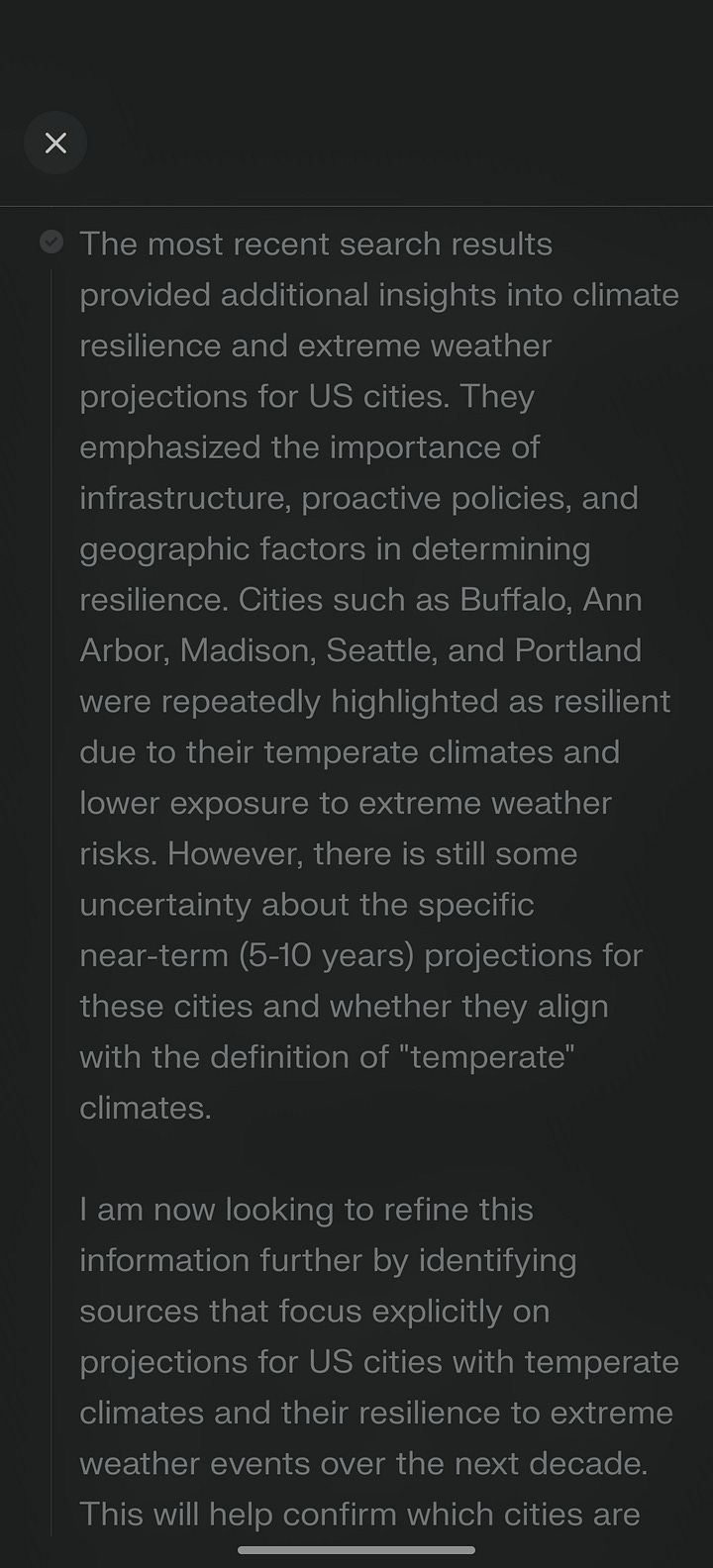Perplexity Had a Mac McClung Level Week
Perplexity - the “AI answers engine” or Google search rival - had a heck of a week last week. They released not one, but two impressive looking new models, and each of them looks notable and newsworthy in their own right. They are Sonar and Deep Research.
Sonar
Sonar’s short bio seems to be: very fast with enhanced factual accuracy and readability. AI News offers more details on it:
Through extensive A/B testing, Sonar has demonstrated superior performance compared to other models in its class, such as GPT-4o mini and Claude 3.5 Haiku. It even rivals high-end models like GPT-4o and Claude 3.5 Sonnet in user satisfaction—while running at a fraction of the cost. One of Sonar’s standout features is its exceptional speed. Powered by Cerebras inference infrastructure, it achieves a decoding throughput of 1,200 tokens per second, making it nearly 10 times faster than models like Gemini 2.0 Flash. This enables users to receive instant answers, making Sonar ideal for both quick searches and detailed inquiries. What Makes Sonar Unique? Perplexity optimized Sonar for two key areas: • Answer Factuality – Ensures responses are grounded in reliable sources and resolves conflicting or incomplete information. • Readability – Enhances clarity and formatting, making answers concise, well-structured, and easy to follow. Additionally, Sonar excels in industry benchmarks: • IFEval – Measures how well the model follows user instructions. • MMLU – Assesses world knowledge across a wide range of topics.
I haven’t done any timed speed testing against Gemini 2.0 Flash or other models, but after several days using it my gut feel impression is that it’s very fast indeed. There’s very little wait time from hitting go on a prompt to seeing at least the beginning of its response. The finished response is done super quick too. It’s now my default model in Perplexity.
Deep Research
Deep Research models seem to be all the rage right now, with Gemini and ChatGPT also having entries in the space. ChatGPT is only available for Pro users right now, although this statement gives me hope that I’ll see it on my Plus plan in the not too distant future:
"Deep research in ChatGPT is currently very compute intensive. The longer it takes to research a query, the more inference compute is required. We are starting with a version optimized for Pro users today, with up to 100 queries per month. Plus and Team users will get access next, followed by Enterprise."
Gemini’s Deep Research model is quite good, the best thing I’ve seen from Gemini so far. Perplexity’s Deep Research model was released on Valentine’s Day and is available now for Pro and free users:
We believe everyone should have access to powerful research tools. That’s why we’re making Deep Research free for all. Pro subscribers get unlimited Deep Research queries, while non-subscribers will have access to a limited number of answers per day.
I have a Pro plan with Perplexity and saw it available on Saturday (the day after release) in the web app and the Android app:


As with Sonar, I’ve only had a few days to start trying out Perplexity’s Deep Research , but again early impressions are good. Thus far I’ve tried it with these three topics/prompts:
How will cybersecurity defenders adapt to and address new AI driven cyber attack techniques
Please provide an overview of the history leading to breakthroughs in quantum computing, how it will impact cryptography, and how this will impact cybersecurity in particular
Which cities in the US with temperate climates will be most resilient to extreme weather over the next 5-10 years
When you choose to use Deep Research, the response takes longer than it does with any of the other models. This is the same in Gemini and Perplexity and it’s because the models are thinking through and working through the ways to deliver the best response. Gemini shows its plan and waits for you to click or tap ‘Start Research’. Perplexity does not wait for approval, but does show how it is working on your prompt. I really like seeing the working through details:


Perplexity says this about how Deep Research works and what it delivers:
Research with reasoning - Equipped with search and coding capabilities, Perplexity’s Deep Research mode iteratively searches, reads documents, and reasons about what to do next, refining its research plan as it learns more about the subject areas. This is similar to how a human might research a new topic, refining one’s understanding throughout the process.
Report writing - Once the source materials have been fully evaluated, the agent then synthesizes all the research into a clear and comprehensive report.
Export & Share - You can then export the final report to a PDF or document, or convert it into a Perplexity Page and share it with colleagues or friends.
As much as I like seeing the process - the research with reasoning - it’s the quality of the results that counts. And they’ve been quite good so far. The response to my prompt on advances in quantum computing is particularly strong, detailed, and well sourced.
The export and share options provided are a nice feature too. I’m looking forward to using Deep Research in Perplexity more, and seeing how it compares with Gemini’s model.
Oh, and if you’re not an NBA fan, or not a fan of the annual Slam Dunk Contest during the NBA All-Star Game Weekend, a Mac McClung level week won’t make much sense. Mac is “only” 6'2, very short by NBA standards - but on Saturday night he won the Slam Dunk contest for the third straight year. All three of his dunks were spectacular - here’s the final one:




